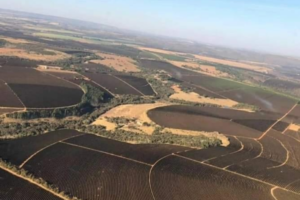How Technology is Elevating Industry Standards
Introduction:
Specialty coffee is currently undergoing a profound transformation, largely propelled by the relentless march of technological progress. This evolution is reshaping the traditional landscape of the coffee industry, introducing innovations that not only enhance the quality of coffee but also promote sustainability and enrich consumer experiences.
The Rise of Specialty Coffee:
Specialty coffee, distinguished by its unwavering commitment to quality, traceability, and distinctive flavor profiles, has emerged as a dominant force in the global coffee market. In recent years, there has been a remarkable surge in demand for specialty coffee products, driven by an increasingly discerning consumer base that seeks more than just a caffeine fix—they crave an elevated sensory experience.
Technology’s Impact on Quality:
Advancements in technology have revolutionized every facet of coffee production, revolutionizing everything from cultivation techniques to the brewing process. Through the application of precise roasting methods, automated brewing systems, and rigorous quality control measures, coffee producers can consistently deliver unparalleled taste experiences to consumers while preserving the integrity of the beans.
Enhancing Sustainability:
The coffee industry faces immense pressure to adopt more sustainable practices, given the environmental challenges and socioeconomic inequalities inherent in coffee production. Fortunately, technology offers a plethora of solutions to address these issues, ranging from precision agriculture tools that optimize resource usage to eco-friendly processing methods that minimize waste and pollution.
Empowering Farmers:
Smallholder coffee farmers, who form the backbone of the industry, stand to benefit significantly from technological innovations. By leveraging digital tools and data-driven insights, farmers can make informed decisions regarding crop management, pest control, and harvesting practices. Additionally, access to mobile banking and e-commerce platforms enables farmers to bypass middlemen and secure fair prices for their produce.
The Role of Data Analytics:
Data analytics and machine learning algorithms have emerged as invaluable tools for improving coffee quality and yield. By analyzing vast datasets encompassing factors such as climate conditions, soil composition, and agronomic practices, farmers can optimize their cultivation techniques to maximize productivity and minimize environmental impact.
Innovations in Processing:
In recent years, coffee aficionados have witnessed an explosion of experimentation in processing methods, leading to the discovery of novel flavor profiles and aroma characteristics. Techniques such as carbonic maceration and anaerobic fermentation have gained popularity for their ability to enhance the complexity and depth of specialty coffees, captivating the palates of discerning consumers.
Revolutionizing the Consumer Experience:
Technology-driven initiatives are reshaping the way consumers interact with coffee, both in terms of sourcing and consumption. Blockchain technology enables transparent supply chains, allowing consumers to trace the origin of their coffee beans with unprecedented accuracy. Mobile apps and augmented reality experiences provide educational resources and personalized recommendations, empowering consumers to explore the world of coffee with confidence and curiosity.
Challenges and Opportunities:
Despite the transformative potential of technology, the coffee industry still grapples with numerous challenges, including unequal access to resources and the digital divide. Bridging these gaps requires concerted efforts from industry stakeholders, policymakers, and advocacy groups to ensure that the benefits of technological innovation are equitably distributed across the coffee value chain.
Emerging Trends in Specialty Coffee:
In addition to technological advancements, several emerging trends are shaping the specialty coffee landscape. Direct trade relationships between coffee producers and roasters are gaining traction, fostering greater transparency and fostering mutually beneficial partnerships. Moreover, there is a growing demand for single-origin coffees, which highlight the unique terroir and flavor profiles of specific coffee-growing regions. Concurrently, experimental processing methods, such as honey processing and natural fermentation, continue to push the boundaries of flavor innovation, captivating the imaginations of coffee enthusiasts worldwide.
Social Impact of Specialty Coffee:
Beyond economic considerations, specialty coffee has significant social implications, particularly for coffee-producing communities in developing countries. Initiatives such as fair trade certification and direct trade agreements aim to ensure that coffee farmers receive fair wages and have access to essential resources, such as education and healthcare. Additionally, women’s empowerment programs and community development projects empower marginalized groups within coffee-growing regions, promoting gender equality and social equity.
Educational Initiatives:
Education plays a pivotal role in fostering a deeper appreciation for specialty coffee among consumers and industry professionals alike. Barista training programs, coffee tasting workshops, and online courses provide valuable insights into coffee cultivation, processing, and brewing techniques, empowering individuals to become ambassadors for quality and sustainability within their communities. By investing in education, the specialty coffee industry cultivates a knowledgeable and passionate community that drives innovation and elevates standards across the board.
Future Outlook:
Looking ahead, the future of specialty coffee appears promising, fueled by ongoing technological innovation, evolving consumer preferences, and a growing emphasis on sustainability and social responsibility. As the industry continues to evolve, collaboration, transparency, and inclusivity will be critical drivers of success. By embracing these principles and leveraging technology responsibly, the specialty coffee community can build a more resilient, equitable, and vibrant future for all stakeholders involved. As we embark on this journey together, let us raise our cups to a brighter tomorrow—one sip at a time.
Conclusion:
The specialty coffee industry stands at the forefront of innovation, driven by the convergence of technological advancements, evolving consumer preferences, and a steadfast commitment to sustainability. As we reflect on the journey of specialty coffee, it becomes evident that the marriage of technology and tradition has paved the way for unprecedented growth and transformation.
From the meticulous cultivation of coffee cherries to the artful preparation of the final brew, technology has left an indelible mark on every stage of the coffee production process. Precision farming tools, data analytics, and innovative processing techniques have not only elevated the quality of coffee but also empowered farmers to embrace more sustainable practices and secure fairer prices for their produce.
Moreover, technology has revolutionized the way consumers engage with coffee, offering unprecedented transparency, customization, and education. Through blockchain-enabled traceability, mobile apps, and immersive experiences, coffee enthusiasts can now embark on a journey of discovery, tracing the origin of their beans and exploring the rich tapestry of flavors that specialty coffee has to offer.
However, amidst the optimism and progress, it is imperative to acknowledge the challenges that lie ahead. The digital divide, unequal access to resources, and the looming specter of climate change pose formidable obstacles that must be addressed with urgency and resolve. Only through collaborative efforts and a steadfast commitment to inclusivity can we ensure that the benefits of technological innovation are equitably distributed across the coffee value chain.



